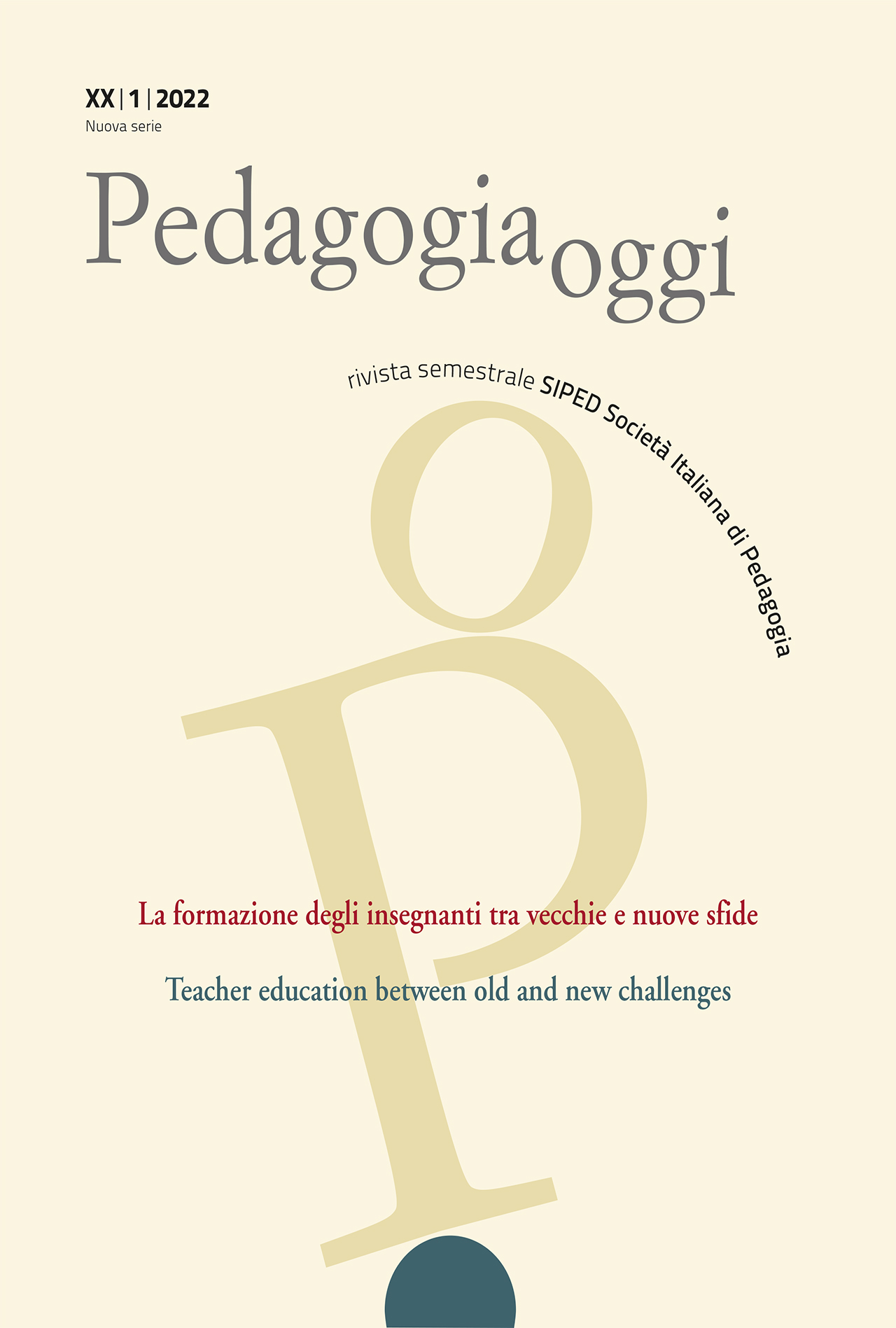La formazione iniziale degli insegnanti in Afghanistan. Percorso storico e prospettive pedagogiche
DOI :
https://doi.org/10.7346/PO-012022-33Mots-clés :
formazione docenti, Afghanistan, modello pedagogico, emergenza, diritti planetariRésumé
Il presente lavoro intende presentare, in prima istanza, il modello pedagogico alla base della formazione per il reclutamento nel settore pubblico dei docenti della scuola primaria, in un territorio segnato da una gravissima emergenza politico-sociale quale l'Afghanistan. A partire da una prima parte dedicata alla ricostruzione delle vicende sociali, politiche e culturali che hanno segnato l’evoluzione della crisi afgana nell'ultimo ventennio, nella seconda sono ricostruiti i dispositivi statali messi in atto per la teacher education, training and enrollment. Nell'ultima parte, infine, procederemo a una analisi critica delle soluzioni governative fin qui realizzate, con particolare riferimento alle più attuali esigenze del Paese. Per questa ultima parte ci si avvarrà di dati qualitativi (interviste in profondità di attori privilegiati) e informazioni direttamente acquisiti su campo grazie alla consolidata collaborazione con l’ONG PenPath che, da più di 10 anni, è impegnata nella fondazione di scuole nelle zone rurali dell'Afghanistan. Grazie a questa testimonianza sono emersi specifici bisogni educativi a partire dal riposizionamento della figura docente all'interno di un contesto socio-culturale pesantemente compromesso. Particolarmente forte è sentito il bisogno di modelli formativi atti a sostenere la professionalizzazione di docenti che possano impegnarsi nella progettazione di percorsi mirati alla diffusione di una cultura dell'educazione improntata a saperi generativi, condivisi e democratici (Freire, 1997) fin dalla prima infanzia. PenPath solleva il bisogno urgente di ripensare una adeguata formazione del corpo docente al fine di impostare un lavoro politico e culturale che (si auspica) possa contribuire al raggiungimento degli obiettivi di sviluppo per il paese tutto e la promozione di diritti planetari, non esportabili o comunque replicabili secondo una logica colonialista, a partire dal diritto allo studio per tutti, nessuno escluso.




